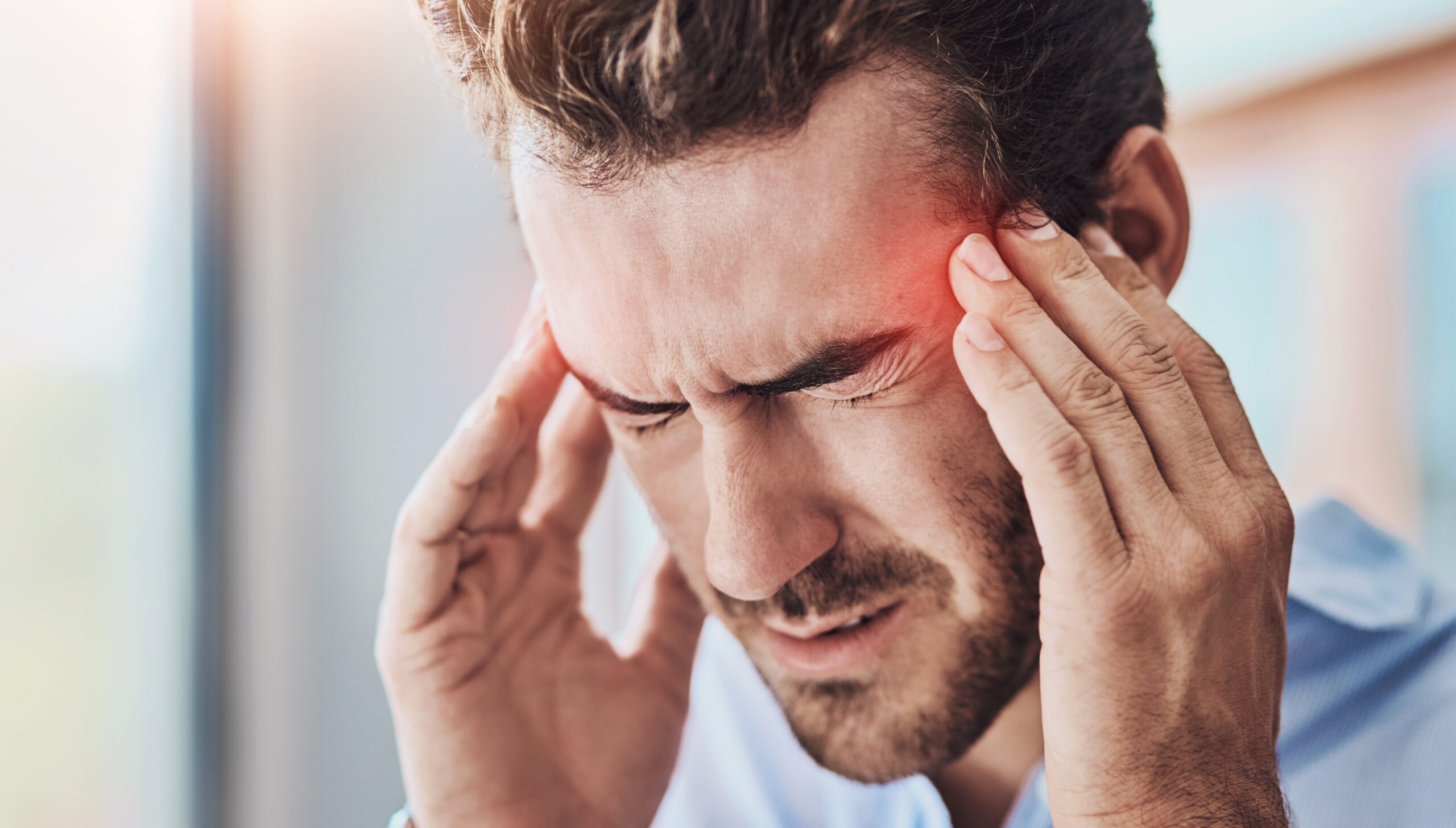Stress, Anxiety, and Teeth Grinding: The Hidden Causes of TMJ Pain
Understanding what’s causing your jaw pain is the first step to effective treatment
5 minute read
If you feel a dull or persistent ache in your jaw or in front of your ears, this can sometimes be a sign of a temporomandibular joint (TMJ) disorder. Your dentist may recommend a variety of treatments for TMJ pain, but they will first aim to identify the underlying cause.
There can be many reasons for TMJ pain, from bad daily habits putting excess pressure on your jaw to joint conditions such as arthritis, but some causes can be harder to identify, and treatment may involve the collaboration of several health practitioners.
Read this overview of the common causes of TMJ pain, other possible signs of TMJ disorders and treatment options that might help. If you need to talk to a dentist about your symptoms and to discuss your options, get in touch with our friendly team at Kelmscott Dental today.
What are the common symptoms of TMJ disorder?
The temporomandibular joints (TMJ) are the two joints on each side of your head, in front of your ears, where your lower jaw bone (known as the mandible) attaches to your skull. These are complex systems of moving discs, bone and cartilage that enable the jaw to move in different directions when you open and close your mouth, chew and grind food, and perform other actions. Conditions affecting these joints are known as TMJ disorders or dysfunction (TMJD).
Not everyone with TMJD experiences the same symptoms, but common signs include:
- Pain or tenderness in the jaw joints or surrounding muscles
- Clicking, popping or grating sounds when moving the jaw
- Restricted movement of the jaw, such as jaw locking
- Difficulty or pain when chewing
- Headaches or pain in the ear, face or neck
- Stiffness in the shoulders
- Hearing loss or dizziness
These symptoms may range from mild to severe and can make simple actions such as eating and speaking difficult, as well as affecting a person’s quality of life. They can also become more severe without treatment.

If you’re concerned that you might have a TMJ disorder, call our Kelmscott dentists today on (08) 9495 7999 to schedule an assessment.
What causes TMJ pain and disorders?
TMJ disorders can occur when the joint becomes misaligned, damaged or is put under strain. These causes may be physical, or psychological, and can include:
- Teeth grinding or clenching (bruxism)
- Stress or anxiety
- Jaw injuries
- Joint conditions and other medical conditions
- Misaligned teeth or jaws
- Habits like chewing on hard objects
- Hormones may also play a role
Identifying the specific cause of TMJ pain can sometimes be difficult, and there can often be more than one related cause that needs to be addressed.
Teeth grinding or clenching (bruxism)
The involuntary grinding of teeth or clenching of the jaw, known as bruxism, is thought to be a common cause of TMJ disorders, as these actions repeatedly put pressure on the lower teeth and jaws. A review of several studies found that teeth grinding was present in 87.5% of patients with joint pain and disc displacement. Frequent and severe teeth grinding is more likely to result in chronic TMJ pain or other symptoms.*
Teeth grinding can occur during the day, in response to triggers such as stress and anxiety, but it’s more common during sleep, when most people may not be aware that they’re grinding their teeth. Possible signs of bruxism include:
- Tooth pain or sensitivity
- Chipped or cracked teeth
- Teeth surfaces looking flat or worn
- Jaw pain or stiffness
- Headache, ear ache or facial pain
Bruxism can have some of the same underlying causes as TMJ pain, including stress and misaligned or uneven teeth. If it’s not addressed, it can also increase a person’s risk of developing other chronic conditions, such as obstructive sleep apnoea (OSA).
To learn more, read our blog exploring The Link Between Teeth Grinding, TMJD and OSA.
Stress or anxiety
Many people with TMJ pain and related issues such as teeth grinding report experiencing stress or anxiety, along with other mental health concerns such as depression and post-traumatic stress disorder. Living with TMJ pain may also contribute to stress, anxiety and depression, creating a vicious cycle that can be difficult to break.*
These psychological factors may cause TMJD through teeth grinding, which puts pressure on the jaw, or muscle hyperactivity and fatigue, which can cause muscle spasms around the TMJ joints. Studies have found that these are also common factors for other joint disorders in the body, such as back pain and arthritis pain.*
Jaw injuries
Injury or trauma to the mouth or jaw can cause the TMJ to become misaligned or damaged, or may strain or injure the surrounding tissues. In one study, almost a quarter (24.5%) of people with TMJ pain had a history of trauma, while another study found that 1 in 3 people who experienced whiplash injuries were at risk of developing TMJD.*
Joint and medical conditions
Medical conditions that affect the joints or surrounding muscles and connective tissues may also cause TMJD or make symptoms worse. Rheumatoid arthritis or osteoarthritis can damage the joint’s cartilage, while conditions affecting the jaw muscles may cause spasms.
Misaligned teeth or bite
An aligned bite is when the upper and lower teeth come together properly when the mouth is closed. If a person’s bite isn’t properly aligned, the jaw joints can be put under excess pressure. This is an orthodontic issue that causes teeth to become prematurely worn, damaged or lost.
Teeth grinding can also be caused by a misaligned bite or may cause teeth to become misaligned and uneven over time due to excess wear.
Bad habits
Along with teeth grinding and jaw clenching, other habits like biting fingernails, chewing on pencils and other hard non-food objects puts unnecessary pressure on the teeth and jaw joints. This can lead to TMJD over time, as well as increasing the risk of teeth chipping and cracking under the strain.
Excessive gum chewing also puts strain on the jaw joints through overuse. One study found that people who chewed gum for more than 4 hours per day were more likely to have TMJ pain when the jaw was at rest or in use.*
Hormones
Oestrogen hormones may also be a risk factor for developing TMJD, with some studies finding that signs and symptoms of TMJ disorders are four times more likely in women than men. Studies also found that TMJ pain increased by 20% in women taking oral contraceptives and 30% in women undergoing treatment for menopause.*
How is TMJ disorder diagnosed?
If you think you might have symptoms of a TMJ disorder, you should see a dentist. They will ask about your symptoms, assess the range of motion of your jaw, examine your teeth for signs of wear, damage or misalignment, and discuss any relevant risk factors to determine the likely cause.
Diagnosing TMJD and treatment planning may involve the use of x-rays and other imaging techniques such as CT or MRI scans to give your dentist a complete view of your jaw joints and the surrounding tissues.
What treatments are available for teeth grinding and TMJ pain?
TMJD treatments and remedies aim to alleviate the symptoms and treat the underlying cause of the disorder. They can vary from case to case, depending on the cause and severity of your TMJ pain. Treatment options can include:
- Home remedies: Applying heat or cold, trying not to overuse your jaw, and avoiding hard foods and bad chewing habits. Learn more about home remedies in our blog.
- Oral splint: Wearing a custom-made splint or night guard prescribed by your dentist can prevent teeth grinding during sleep and may help to stabilise the jaw over time.
- Physical therapy: Guided jaw strengthening exercises or other treatments such as ultrasound.
- Counselling: Talking to a professional to help you manage stress or anxiety or change undesirable habits
- Medication: Pain relief and anti-inflammatory medication may help to ease TMJD symptoms in the short term but are not recommended for long-term use. Other options may include muscle relaxant injections which may be provided by your dentist.
- Teeth straightening: Correcting a misaligned bite with orthodontic treatment or restoring damaged or worn teeth using fillings or crowns.
- Injections: Corticosteroid injections or muscle relaxants targeting the jaw muscles may help temporarily to relieve TMJ pain in some cases.
- Surgery: In severe cases, your dentist may refer you to a specialist who can operate on the joint to restore its function and relieve symptoms.
Can TMJ disorders go away on their own?
Mild TMJD symptoms and those with no physical cause may improve over time with good self-care and trying to avoid triggers. If you are only experiencing symptoms such as your jaw clicking or popping with no accompanying pain, TMJD treatment may not be urgent, but the condition could become worse over time.
If TMJ pain is more severe, or is caused by an issue such as teeth grinding, a misaligned bite or a medical condition, the symptoms will likely continue unless the underlying cause is successfully managed or treated.
Talk to a dentist in Kelmscott
If you think you have TMJ pain, teeth grinding or other possible signs of a problem, contact Kelmscott Dental to book a consult with one of our experienced dentists today. Call us on (08) 9495 7999 or make a booking online. We welcome patients from all surrounding areas, including Armadale and Gosnells.
References
* Chisnoiu AM, Picos AM, Popa S, Chisnoiu PD, Lascu L, Picos A, Chisnoiu R. Factors involved in the etiology of temporomandibular disorders – a literature review. Clujul Med. 2015;88(4):473-8. doi: 10.15386/cjmed-485. Epub 2015 Nov 15. PMID: 26732121; PMCID: PMC4689239.
Any surgical or invasive procedure carries risks. Before proceeding, you should seek a second opinion from an appropriately qualified health practitioner.



